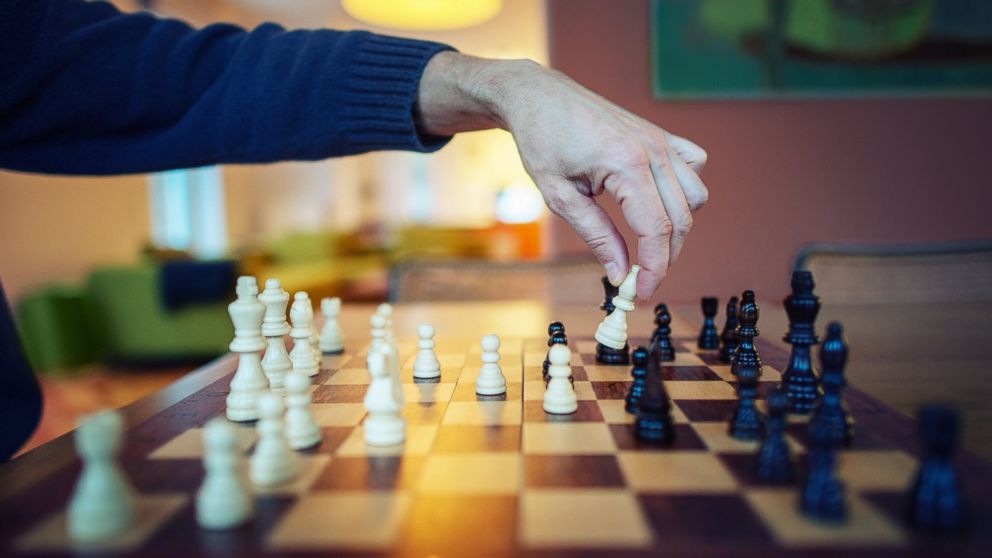Ways to Age-Proof Your Brain
A whole host of activities can help keep our brains young even as we age.

— -- intro:What's good for your body is good for your brain. That means eating a balanced diet with lots of fruits and veggies and not much sugar, saturated fat, or alcohol, as well as getting enough exercise and sleeping about eight hours a night. But evidence is accumulating that a whole host of other activities can help keep our brains young even as we advance in chronological age. There is no one magic activity that you need to take on, but trying a handful of the following will help.
12 Unexpected Things That Mess With Your Memory
quicklist: 1category: Ways to Age-Proof Your Braintitle: Take dance lessonsurl:text:Seniors who danced three to four times a week—especially those who ballroom danced—had a 75% lower risk of dementia compared with people who did not dance at all, found a 2003 landmark study in the New England Journal of Medicine. Why? "Dancing is a complex activity," says study lead author Joe Verghese, MD, chief of geriatrics at Montefiore Medical Center in New York City. "It's aerobic so it improves blood flow to the brain which has been shown to improve brain connections. It also provides mental challenges." While it can be hard to prove cause and effect (people with dementia may cut back on activities), the study enrolled people without dementia and followed them over time.
9 Foods for That Will Save Your Memory
quicklist: 2category: Ways to Age-Proof Your Braintitle: Play an instrumenturl:text:Whether it's the saxophone, the piano, or a ukulele, researchers found that playing an instrument for 10 or more years was correlated with better memory in advanced age compared to those who played music for less than 10 years (or not at all). Other research shows that even listening to music can help boost your brainpower. A study from the Stanford University School of Medicine found that listening to baroque music (Vivaldi, Bach) leads to changes in the brain that help with attention and storing events into memory.
25 Signs and Symptoms of Alzheimer's Disease
quicklist: 3category: Ways to Age-Proof Your Braintitle: Learn a foreign languageurl:text:Being bilingual may help delay the onset of dementia. Individuals who spoke two languages developed dementia an average of four and a half years later than people who only spoke one language in a 2013 study published in the journal Neurology. Other research shows that people who speak more than one language are better at multitasking and paying attention. Experts say the earlier you learn, the better—growing up speaking two languages is optimal—but that it's never too late and every little of language learning helps.
quicklist: 4category: Ways to Age-Proof Your Braintitle: Play chessurl:text:Playing chess, bingo, checkers, and card games may help keep your brain fit. A 2013 French study found a 15% lower risk of dementia among people who played board games versus those who did not. And the effects seemed to last over the study's 20-year follow-up. "The idea is that this helps build cognitive reserve," says Dr. Verghese, whose study also found benefits to playing board games like Monopoly. "The more these activities buffer against the disease, you may be able to mask the effects of the disease for longer periods of time. It buys you extra time."
quicklist: 5category: Ways to Age-Proof Your Braintitle: Read more of lessurl:text:Reading, in general, is good for the brain. But reading fewer books and articles so you can give them each of them more focused attention may be even better. "Our brain doesn't do very well with too much information. The more you download, the more it shuts the brain down," says Sandra Bond Chapman, PhD, director of the Center for Brain Health at the University of Texas at Dallas. "It's better to read one or two good articles and think about them in a deeper sense rather than read 20."
quicklist: 6category: Ways to Age-Proof Your Braintitle: Change your fonturl:text:Next time you have to read through some documents for work, consider changing the typeface before you print them out. Chances are, the docs came to you in an easy-to-read font like Arial or Times New Roman, but switching it to something a little less legible like Comic Sans or Bodoni may improve your comprehension and recall of the information, according to a small study out of Harvard University. Likewise, a study at an Ohio high school revealed that students who received handouts with less-legible type performed better on tests than the students who were given more readable materials. It's a version of the no-pain-no-gain phenomenon: When you exert more effort, your brain rewards you by becoming stronger. But make sure you keep things new by changing fonts regularly.
quicklist: 7category: Ways to Age-Proof Your Braintitle: Write about your stressurl:text:In one study, college students who wrote about stressful experiences for 20 minutes three days in a row improved their working memories and their grade point averages. Students who wrote about neutral events saw no such improvements. "We hypothesized that stress causes unwanted, intrusive thoughts," says study co-author Adriel Boals, PhD, associate professor of psychology at the University of North Texas in Denton. "Writing gets rid of intrusive thoughts then working memory increases." If something's bothering you, don't bottle it up.
17 Ways to Age-Proof Your Brain originally appeared on health.com.




